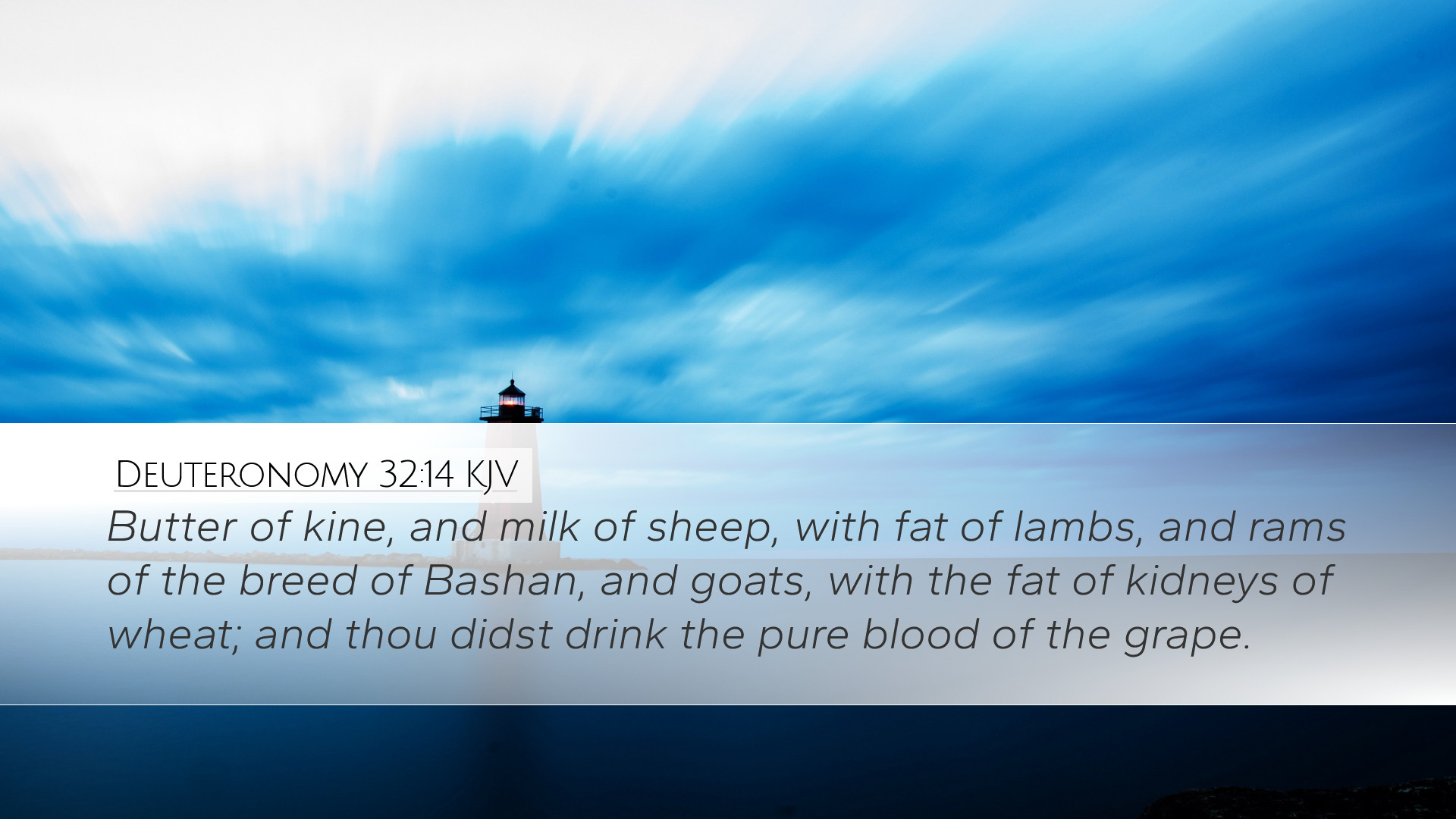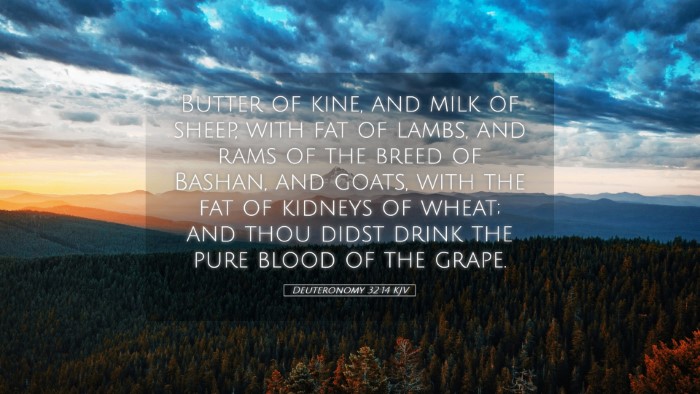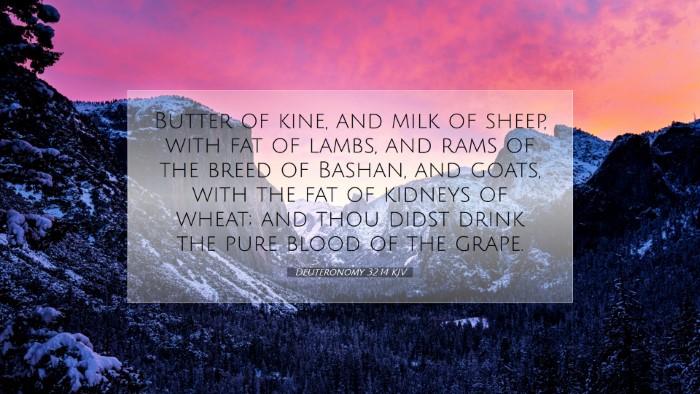Deuteronomy 32:14 - A Commentary
Verse: "He made him ride on the high places of the earth, and he did eat the increase of the fields; and he made him to suck honey out of the rock, and oil out of the flinty rock."
Context and Significance
This verse is part of the Song of Moses, a profound poetic reflection on God's relationship with Israel, juxtaposing their blessings against their failings. It serves to remind Israel of their rich heritage and the divine providence that has sustained them, emphasizing both God's goodness and their tendency towards forgetfulness.
Exegesis and Insight
The imagery used in this verse paints a vivid picture of divine blessing and prosperity. The high places of the earth symbolize both a physical elevation and a metaphorical one, as being on high signifies being esteemed and blessed by God. The mention of honey and oil, which are considered luxurious and essential commodities, underscores the abundance that God provides.
1. The High Places of the Earth
Matthew Henry notes that God's intention for Israel was to place them in high, blessed positions, indicating His favor upon them. Riding on high places signifies power, supremacy, and divine favor. Barnes elaborates that such high places are not just geographical but reflect the elevated status that Israel holds as God's chosen people. They were meant to experience not just material blessings but spiritual elevation as well.
2. The Produce of the Fields
The fruits of the fields represent the sustenance provided by God, showcasing the richness of the land promised to Israel. Albert Barnes emphasizes the metaphor of sufficient nourishment which Israel would derive from God's providential care. This is foundational to God’s covenant, highlighting that obedience and faithfulness would lead to prosperity.
3. Honey out of the Rock
The striking phrase, “suck honey out of the rock,” is interpreted by Clarke to indicate unexpected and extraordinary provision. Rocks are typically barren, yet God makes the impossible possible. This speaks to God’s ability to provide abundantly where one least expects it, instilling faith that even in dire circumstances, God's provision can remarkably manifest.
4. Oil from the Flinty Rock
The oil represents not just physical sustenance but also the anointing and blessing of God. Clarke identifies oil as a symbolic representation of joy and the Holy Spirit's presence. This underscores that God's blessings are tangible and spiritual, pointing to the dual nature of His providence that cares for body and soul.
Theological Implications
This verse not only reflects God's abundant provisions but also invites deeper theological reflection on the nature of divine blessing. When considering how God provides for His people, significant themes emerge:
- God's Sovereignty: God's ability to provide from unconventional sources illustrates His supreme sovereignty over creation.
- Covenantal Faithfulness: The context implies a covenant where blessings flow from obedience. This relationship is key to understanding the dynamics between Israel and God.
- Unexpected Grace: God’s provision oftentimes comes in ways we least expect, reminding believers to trust in His character; He is the one who brings forth life from stone.
Pastoral Applications
For pastors and church leaders, this verse provides rich material for preaching and teaching. The themes of divine provision can encourage congregants who face challenges to trust in God’s goodness, reminding them of His past faithfulness as a source of hope for the future. It serves as a reminder to believers to recognize and remember God's blessings, which can easily be overlooked during difficult times.
Conclusion
Deuteronomy 32:14 encapsulates a profound theology of God's care and provision. For students and theologians, the exploration into its implications invites deeper understanding of the narrative of scripture, encouraging holistic engagement with the text that encompasses historical, theological, and pastoral orientations. In acknowledging the richness of God's provisions, the faithful are called to live lives that reflect gratitude and obedience, ensuring that they remain in the cycle of blessings intended by God.


